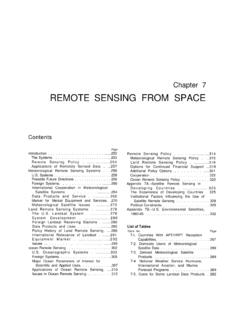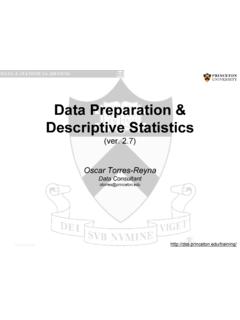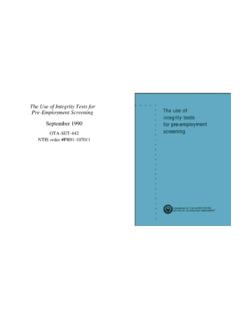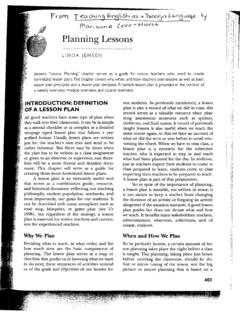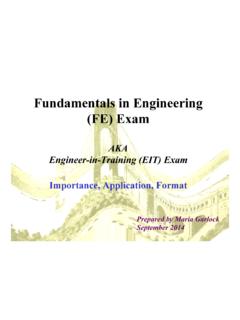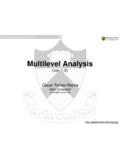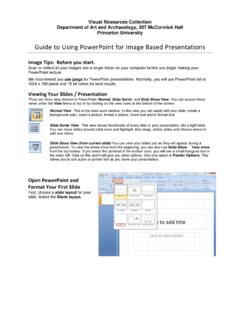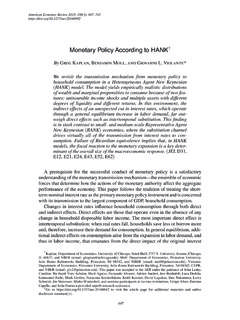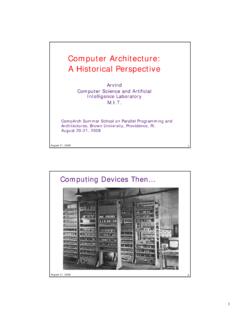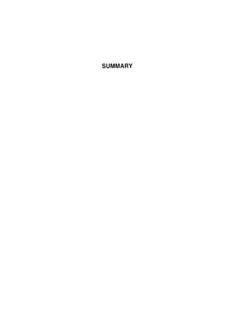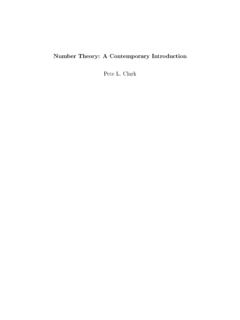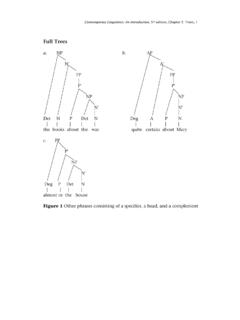Transcription of CONTEMPORARY SOCIOLOGICAL THEORY - Princeton …
1 1 SOC 502 CONTEMPORARY SOCIOLOGICAL THEORYS pring 2000 Professor Mich le LamontDepartment of SociologyPrinceton hours: by appointment. Tuesdays: 9:00-12:00 Green Hall 2-C-8 This course offers an introduction to CONTEMPORARY SOCIOLOGICAL THEORY forgraduate students aspiring to lead a life of research in the social sciences. The first andprimary goal is to provide guidelines for a reflection on the role of THEORY in sociologicalresearch. We will examine questions such as: What is THEORY ? How is it to be evaluated?How can we build on available theories in constructing new ones? Our second goal willbe to understand how theories are shaped by the context in which they are produced.
2 Wewill also discuss whether the impact of contexts should prevent us from aspiring to theproduction of generalizable theories. A third, broader, objective will be to providestudents with bases needed for achieving a decent level of intellectual literacy within thefield of who have not had exposure to SOCIOLOGICAL THEORY at the undergraduatelevel are encouraged to read one of the following books prior to our first meeting:Randall Collins, 1994. Four SOCIOLOGICAL Traditions. New York: Oxford UniversityPress (for true beginners)Jonathan H. Turner, 1991. The Structure of SOCIOLOGICAL THEORY . Belmont, CA:Wadsworth. (encyclopedic, with a functionalist twist)George Ritzer, 1988.
3 Frontiers of Social THEORY . New York: Columbia University books will provide you with a general road-map of the field of sociologicaltheory, as well as basic information on some of the approaches that we will not be coverdue to time constrains ( , critical THEORY , exchange THEORY , neo-functionalism).The first part of the course defines and contrasts various approaches tosociological THEORY . The second part focuses on structural approaches that privilege theobjective properties of social reality. In particular, we will discuss the ongoing crisis of2neo-Marxism. The third part privileges cultural approaches that emphasize the subjectiveaspects of social reality.
4 We will contrast traditional approaches ( , symbolicinteractionism) with more recent work that focuses on the structural aspects of culturalphenomena. Our goal here will be to go beyond the structure/culture dichotomy thatoften organizes the teaching of postwar SOCIOLOGICAL THEORY . The fourth part turns to thepost-, new, and improved European and American contributions which have had apowerful impact in transforming the meaning of THEORY in sociology and otherdisciplines. We will conclude with a general reflection on the impact of the material wehave covered on our practice as :1) Four memos on a group of weekly readings of your choice. These memos, of amaximum length of three to four pages, should be emailed to all class participants at least24 hours before our meetings.
5 Their role is to help you and others prepare our discussionby pointing to a number of substantive and critical issues, and by identifying connectionsand contrasts between theoretical approaches (40 percent of the grade).2) Several class presentation (30 percent of the grade).3) Take-home exam or a paper on a topic to be discussed with me (30 percent of thegrade; due Friday, May 12th).Readings:The following books are available at the U-Store. A reading packet is also available atPequod, 6 Nassau , Michel. 1979. Discipline and Punish. New York: , Clifford. 1973. The Interpretation of Culture. New York: , Erving. 1963. The Presentation of Self in Everyday Life.
6 New York: England, ed. 1993. THEORY on Gender: Feminism on THEORY . New York: A. 1: IntroductionWeek 1 (February 1): What is THEORY ? Alford, Robert R. 1998. The Craft of Inquiry. Theories, Methods and Evidence. NewYork: Oxford University Press. Pp. 1-4 and chapter , Jonathan. 1991. The Structure of SOCIOLOGICAL THEORY , Belmont, CA:Wadsworth, chapter , Nicos, 1995. SOCIOLOGICAL THEORY . What Went Wrong? London: 2 (February 9): Overview and Approaches to TheoryCalhoun, Craig. l992. "Sociology, Other Disciplines, and the Project of a GeneralUnderstanding of Social Life." Pp. 137-195 in Sociology and Its Publics, edited byTerence C. Halliday and Morris Janowitz.
7 Chicago: University of Chicago , 1997. Why is Classical THEORY Classical? American Journal ofSociology 102 (6): , Randall. 1997. A SOCIOLOGICAL Guilt Trip: Comments on Connell. AmericanJournal of Sociology. 102 (6): , Mich le. l987. "How to Become a Dominant French Philosopher: The Case ofJacques Derrida." American Journal of Sociology. 93 (3): 584-622. Part 2: Toward StructureWeek 3 (February 15): Rational Choice and Network TheoryTurner, Jonathan. 1991. The Structure of SOCIOLOGICAL THEORY , Calhoun, Belmont, CA:Wadsworth. Chapter , Margaret R. 1998. We re No Angels: Realism, Rational Choice, andRelationality in Social Science. American Journal of Sociology 104 (3): , Edgar and Michael Hechter.
8 1998. The Debate on Historical Sociology: RationalChoice THEORY and Its Critics. American Journal of Sociology 104 (3): , Barry. 1988. Structural Analysis: From Method and Metaphor to THEORY andSubstance. Pp. 19-61 in Social Structures: A Network Approach, edited by BarryWellman and Berkowitz. Cambridge: Cambridge University , Mustapha and Jeff Goodwin. l994. "Network Analysis, Culture, and theProblem of Agency." American Journal of Sociology. 99 (6): 4 (February 22): Neo-Marxism, Kindred, and Less-Kindred SpiritsPakulski, Jan and Malcolm Waters. 1996. The Reshaping and Dissolution of SocialClass in Advanced Society. THEORY and Society 25 (5): Olin Wright, 1996.
9 The Continuing Relevance of Class Analysis. Comments. THEORY and Society 25: , David and Jesper B. Sorensen. 1998. Can Class Analysis be Salvaged? American Journal of Sociology 103 (5): , Immanuel. 1991. Call for a Debate about the Paradigm. Pp. 237-256 inUnthinking Social Science. The Limits of Nineteenth-Century Paradigms. London: 3: Toward CultureWeek 5 (February 29): Ethnomethodology and Symbolic InteractionismGoffman, Erving. l959. The Presentation of Self in Everyday Life. New York: , Harold and Harvey Sacks. On Formal Structures of Practical Action. InEthnomethodological Sociology, edited by Jeff Coulter. Brookfield, Vt: Edward ElgarPub.
10 Co. , pp. 6 (March 7): Culture THEORY : From Functionalism to Recent DevelopmentsWallace, Ruth A. and Alison Wolf. 1980 Talcott Parsons: Grand THEORY inContemporary SOCIOLOGICAL THEORY . Englewoods Cliffs, NJ: Prentice Hall, pp. , Clifford. 1973. The Interpretation of Culture. New York: Basic. Chapters 1, 4, 6,and , Stephen and Johan Gouldsblom, ed. 1998. Norbert Elias, On Civilization,Power, and Knowledge. Chicago: University of Chicago Press. , Richard. 1996. Social Identity. London: Routledge. Chapters 4, 6, and of March 14: Spring breakPart 4: Post-, New, and ImprovedWeek 7 (March 21): Structuralism and Post-StructuralismLamont, Mich le and Robert Wuthnow.
